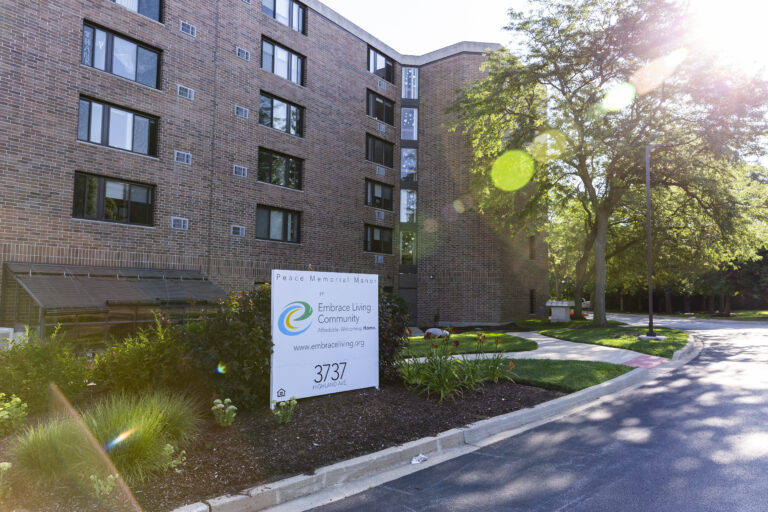
While some may view affordable housing as only a social issue, there are also clear economic benefits, which should not be overlooked when advocating for more affordable housing projects across the United States. These benefits include the stimulation of local economies, job creation and tax benefits. Keep reading to discover the significant economic impact affordable housing has on all of us.
Housing our neighbors stimulates local economies at a far greater rate than leaving them unhoused or without housing assistance.
When people are able to find housing that is affordable and meets their needs, they are more likely to stay in a community. This helps to reduce the rate of turnover, which can have positive economic impacts. For instance, when individuals remain in one community for an extended period, they are more likely to become involved in the local economy. They might start volunteering, shopping locally or even investing in local small businesses.
Affordable housing can also benefit local economies by increasing the disposable income of residents. When individuals don’t have to spend an excessive amount on housing, they can direct more of their income towards other spending types, such as dining out, shopping and other leisure activities. This generates more revenue for local businesses and can even create new business opportunities.
According to a study in New York state, an average 100-unit affordable housing project generates $3.6 million annually in ongoing, local economic activity. The affordable housing industry as a whole in New York sustains $650 million in annual economic spending on local goods and services and building maintenance.
The economy is also stimulated by spending during construction with $15.5 million of public and private investment going into development and an additional $14.1 million in economic spinoff activity, including spending on materials and services, according to that same New York state study.
Housing creates jobs, and lots of them.
Building and renovating affordable housing developments requires a vast range of skilled workers, such as architects, engineers, construction workers, plumbers, electricians and more. It also provides jobs to many day-to-day management staff from housing admins and janitors on the property, to maintenance staff, skilled social workers and healthcare professionals.
In the same New York state study referenced earlier, it was reported that an average 100-unit affordable housing project results in $9.6 million in compensation during construction, with $1.3 million in compensation annually.
Newly constructed affordable housing also has long-term job benefits. Providing affordable housing options boosts the local workforce, as it provides individuals with a secure place to live, enabling them to take on stable work instead of being forced to relocate frequently in search of affordable accommodation. According to the National Association of Home Builders, an estimated one-year impact of building 100 rental apartments is 161 local jobs. The annually recurring impact is 44 additional local jobs.
Affordable housing provides tax benefits that result in increased property value.
Another one of the economic benefits of affordable housing is that it can increase property values and generate tax revenue for local governments. When affordable housing communities are built in an area, they can lead to increased property values for nearby homes and businesses. This can translate into increased property tax revenue for the local government, which can be used to fund public services and infrastructure improvements.
Developers can receive federal tax credits and deductions for investing in affordable housing projects, encouraging the creation of more affordable housing units. Local governments can also offer property tax exemptions or reductions to developers of affordable housing.
In addition, the Low-Income Housing Tax Credit (LIHTC) program was created by Congress in 1986. It is a program that gives State and local LIHTC-allocating agencies tax credits for the acquisition, rehabilitation, or new construction of low-income rental housing. Since 1987, LIHTC has helped create more than $214 billion in tax revenue.
There are many moral reasons to support affordable housing, but on a more practical level, the economic benefits are clear and should also be considered when advocating for affordable housing in communities. Learn more about how we’re improving our affordable housing communities: https://embraceliving.org/property-solutions-renovation-update/
Cited Sources:
https://www.housingfinance.com/news/ny-study-shows-economic-impact-of-affordable-housing_o
https://www.nahb.org/-/media/NAHB/news-and-economics/docs/housing-economics/economic-impact/economic-impact-local-area-2015.pdf
https://www.illinois.gov/news/press-release.26614.html
Feel free to contact us for any future resident, current resident, or general inquiries.